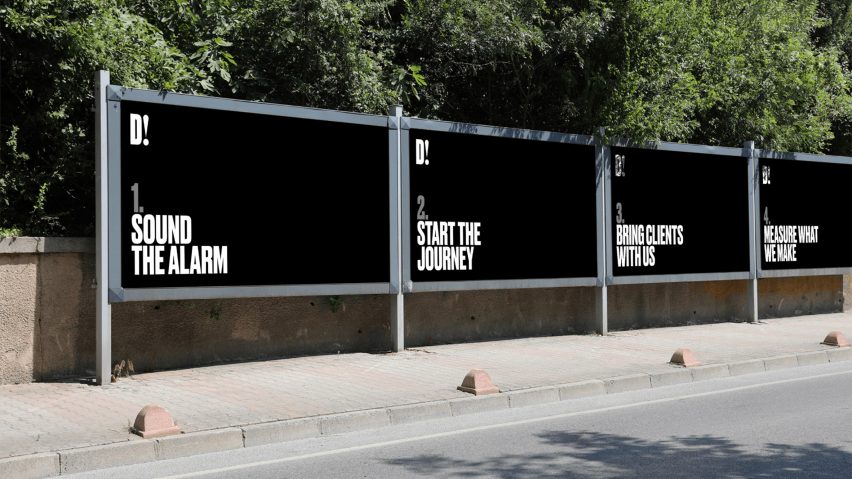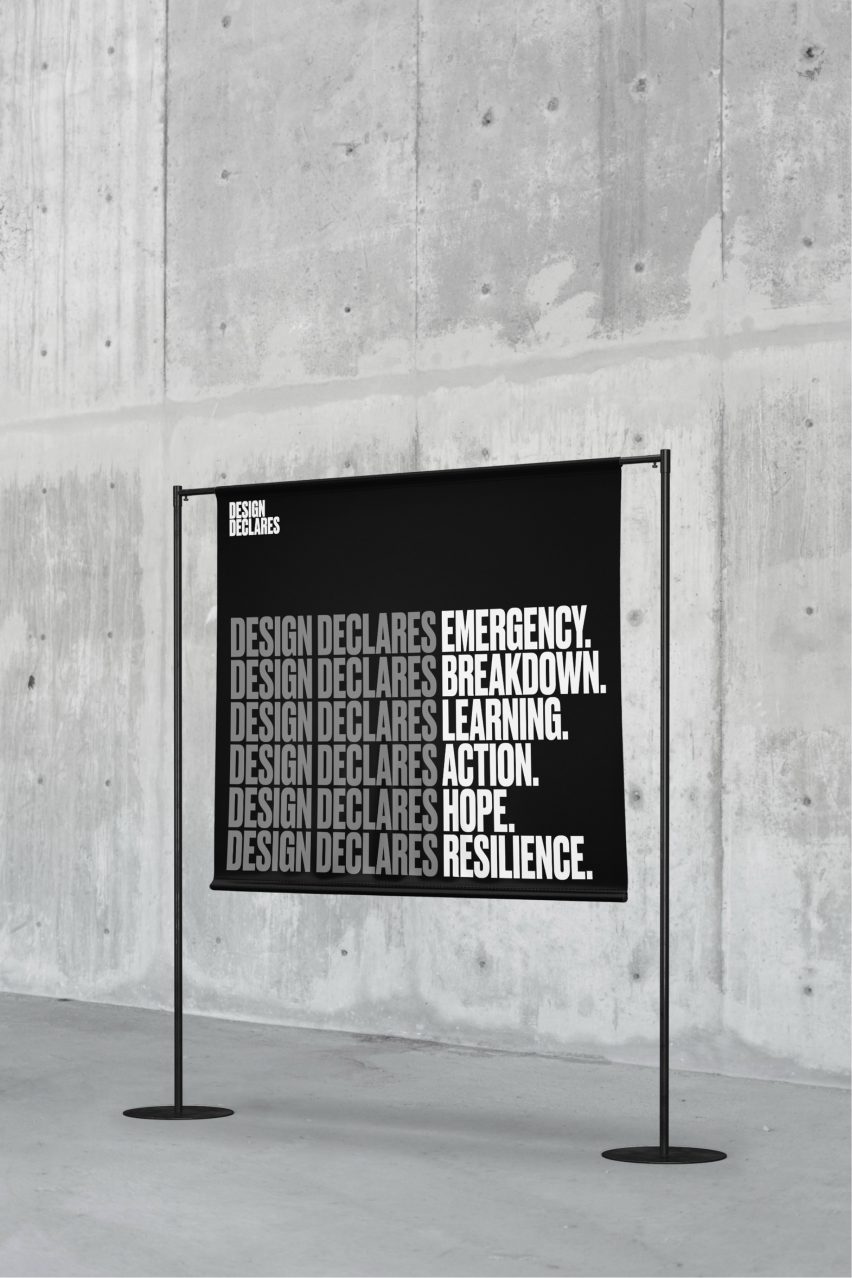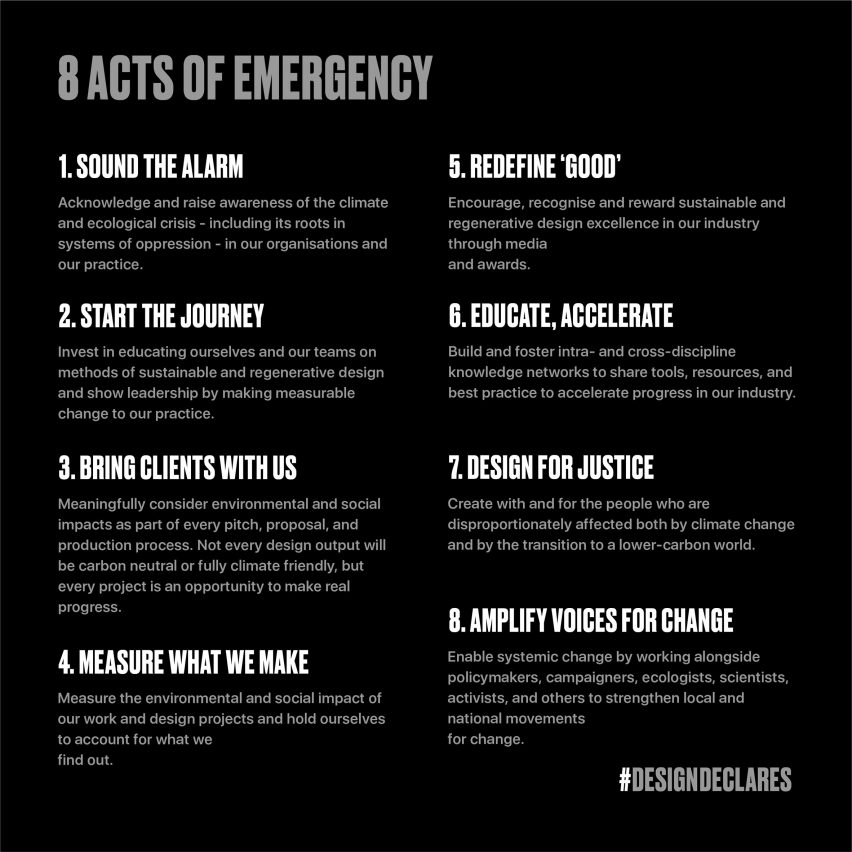
"Declaring a climate emergency is just the beginning of the journey"
The design industry has joined several others in declaring a climate emergency. Design Declares organiser Alexie Sommer explains the background to the launch and what the movement hopes to achieve.
Design Declares is finally here to unite communication, digital, industrial and service designers who are ready to act on the defining issue of our time: climate change. So why now? And what does it mean to declare a climate emergency?
In 2019, amid mounting pressure from Extinction Rebellion, the UK Government became the first to declare a climate emergency. It triggered ripples of industry declaration movements, starting with Culture Declares and Music Declares, and quickly followed by architects, business, engineers, fashion, health, heritage and tourism.
How do you support designers facing the "designer's dilemma"?
Around the same time, over coffee with Sophie Thomas, we at URGE Collective bought the Design Declares web domain name. We started to define what the campaign's elements could look like: a set of principles to sign up to; access to guidance from leading designers; signposts to industry leadership – and we came up against some unanswered questions: whose responsibility is Design Declares? How do we fund it? How do you support designers facing the "designer's dilemma"?

As a service economy, designers are dependent on clients. Hence the designer's dilemma: how do those designers who are emotionally engaged and ready to take action on the climate emergency navigate their businesses if the majority, or even just some of their revenue comes from 'climate conflicting' clients such as oil companies, large supermarket chains or pollutive industries? Do you refuse the work? Do you continue working with these clients to try and effect change from the inside? Do you look for better clients? These are all much easier said than done.
We set up a survey, 'How can design businesses respond to the climate emergency?’, to gather feedback from fellow designers to inform Design Declares and asked the Design Council to circulate it. They didn't. Although at the time, the Design Council was going through an internal shake-up, with a new chief executive and a realigned strategy to 'Design For Planet' – a huge step in the right direction.
Fantastic intention and hope was overshadowed by a lack of industry engagement
At URGE Collective we decided to focus our energy on the first Design For Planet festival that took place in November 2021 whilst COP26 was unfolding in Glasgow. The fantastic intention and hope for the event was overshadowed by a lack of industry engagement. Things continued as usual, as climate scientists shouted ever-louder.
Cut to April 2022, and the Design Council's chief design officer Cat Drew convened a conversation between myself and Jo Barnard, founder of design innovation consultancy Morrama, after Jo had proposed 'Designers Declare' to a room full of industrial designers at a Design Truth event in London.
Finally, Design Declares truly got underway. We spoke to both Architects Declare and Structural Engineers Declare to learn what we could. Key advice: don't take on more than you can chew; foster a movement that isn't about pointing fingers, but rather celebrating and learning from those leading the way; collaborate with industry leadership where you can and encourage self-driven change by providing resources to help designers get straight to action. And thus, the Design Declares Toolkit was born.
Taking a step back, it's important to understand what declaring a climate emergency means. It seems like a simple thing: saying out loud "there is a climate emergency". However, what it means for a business can be a big deal. Firstly, there is the way you run your business – such as how you power your office and conserve energy, how you travel, or how much waste you generate and what do you do with it.
It's important to understand what declaring a climate emergency means
Secondly, and more importantly, it's what you do as a business: who you choose to work for, what projects you take on, what those projects' outcomes are and who they impact. The European Commission statistic that more than 80 per cent of all product-related environmental impacts are determined during the design phase clearly shines the light on the opportunity and responsibility we have as designers.
The campaign is based on the Eight Acts of Emergency listed below, starting with the simplest – "Sound the alarm", through to possibly the most challenging – "Design for Justice". It urges designers to publicly acknowledge the climate and ecological emergency and offers the Eight Acts as starting points to make change.

There is no requirement to already have policies and action plans in place, but there is an understanding that by signing you are committing towards improving your knowledge of sustainable and regenerative design and reducing your climate impact. This is where the toolkit comes in, by proposing useful actions, tools, and insights for each of the acts to help designers start shifting their practice straight away. Each signatory will receive an access link to the toolkit.
Design Declares aims to bring together the design industry's voice
The design industry can inform public opinion. Design Declares aims to bring together the design industry's voice, support self-driven industry change, signpost to design industry guidance and show government the weight of industry concern. We're aiming for 1,000 signatories ahead of the Design for Planet Festival in November, where we will present industry asks to government. If you're ready to get involved, then declare on the Design Declares website, spread the word via Instagram and LinkedIn and, most importantly, start change-making.
As a team we're well aware that this is a global problem that needs global solutions, activated locally. While this project has begun in the UK, we are actively seeking partnerships to expand the campaign around the world. If you're interested, please get in touch.
Alexie Sommer is a designer and communication expert who focuses on business sustainability. She is a founding member of URGE Collective, a mentor for Fashion for Good, a consultant strategist with Pentagram, a sustainable human at Group of Humans and was previously creative director at Thomas Matthews and design director for creative at The Guardian newspaper group.